The best time to eat watermelon for hydration, digestion, or weight loss is almost any time of day. The high water content, fiber, antioxidants, and vitamins in watermelon make it a good addition to meals or as a snack for supporting overall health.
Jump to Key Takeaways.
For Weight Loss, Eat Before or After Meals or as a Snack
In general, watermelon is a good choice for weight loss because it is high in nutrients and low in calories:
- Before or after meals: Watermelon is a filling yet low-calorie food. For weight loss, eating watermelon before or with meals may be helpful. This can result in feeling full for longer, which helps avoid overeating at meals or snacking.
- As a snack: Watermelon may also help in weight loss when eaten as a snack. The high water and nutrient content, combined with the low calories, means that you can eat a higher volume of watermelon than other foods. This is more filling than eating smaller amounts of higher-calorie foods.
One small study examined the outcomes of women who were overweight had obesity who ate a snack of either watermelon or low-fat cookies. After four weeks, the women who ate watermelon had decreased body mass index (BMI) and body weight.
One reason for this is that watermelon kept women feeling full for longer than cookies did. The two snacks had the same number of calories, but the volume of watermelon was much greater.
Another reason for the weight loss may be the sugar and nutrient content of watermelon. Watermelon contains more sugar than the cookies do in the form of fructose and glucose. However, the fructose, fiber, and other nutrients in watermelon have a smaller impact on blood glucose levels than those in processed foods, such as cookies.
Watermelon may also be helpful for weight loss, not because of eating the watermelon itself, but because it replaces something else you could be eating. For instance, substituting a processed food, high-fat, or high-sugar snack with watermelon may help with appetite control and weight management.
For Digestion, Eat Watermelon Earlier in the Day
Eating watermelon earlier in the day might be better when trying to get the bowels moving. For people with constipation, increasing water intake can be beneficial in promoting regular bowel movements. The water content of watermelon helps make stool softer and easier to pass.
Watermelon also contains a small amount of fiber. Most people don’t get enough fiber in their diet. Fiber bulks up stool, helping it pass through the digestive system.
Fiber also feeds the good bacteria in the gut microbiome (the community of microbes in your gut). Consuming even small amounts of fiber can add up and be beneficial for digestion.
Some people who eat watermelon right before bedtime may need to urinate more frequently overnight due to its high water content. But there’s no blanket recommendation or reason to think watermelon is always bad to eat at night.
Watermelon Fruit vs. Juice
Watermelon juice is a refreshing drink, making it a good choice for hydration. However, juicing watermelon and removing the pulp may lower the fiber content. For that reason, eating whole watermelon or blending it without removing the pulp is a better choice for weight loss or digestion.
For Hydration, Eat Watermelon During Day
Watermelon is about 91% water. The water in the food counts towards daily hydration. The high water content of a watermelon makes it a good choice for hydration. For people who struggle to drink enough water during the day, eating watermelon can help.
- In the morning: Watermelon is a good choice first thing in the morning or with breakfast to restore hydration levels.
- Daytime hours: Continue to enjoy watermelon throughout the day for hydration.
- One to two hours before physical activity is another good time to eat watermelon. Consuming watermelon before exercise or being out in the heat can help replenish electrolytes and prevent dehydration.
Electrolytes are minerals that have a charge when dissolved in water. Some electrolytes include calcium, magnesium, potassium, and salt (sodium).
You take in electrolytes through food and drink, and lose them through urine and sweat. Watermelon contains water, potassium, and magnesium. It can help replenish these electrolytes lost through sweating due to high heat or exercise.
Watermelon Nutrition
Watermelon is high in water, vitamins A and C, potassium, and magnesium. It does contain sugar, but blood glucose levels return to baseline within an hour of eating it.
One cup of watermelon contains:
- Calories: 46
- Carbohydrates: 12 grams (g)
- Magnesium: 15 milligrams (mg)
- Vitamin A: 865 international units (IU)
- Vitamin C: 12 mg
- Potassium: 170 mg
- Fiber: 0.6 g
- Water: 139 g
Key Takeaways
- Watermelon is helpful for hydration, digestion, and weight loss because it’s low in calories but contains water, vitamins, and minerals.
- There are no guidelines for the best time of day to eat watermelon, but it is a good addition to any meal or snack.
- Replacing a higher-calorie snack with watermelon may help with weight loss.



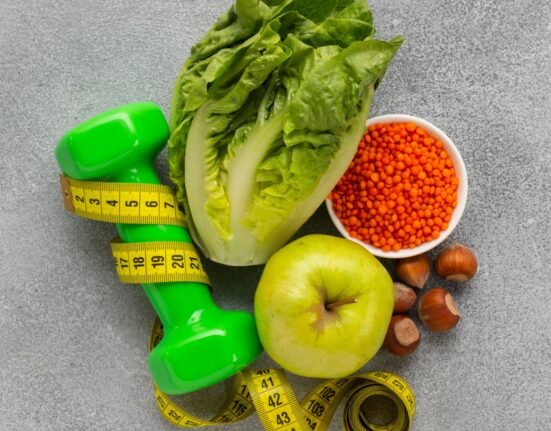
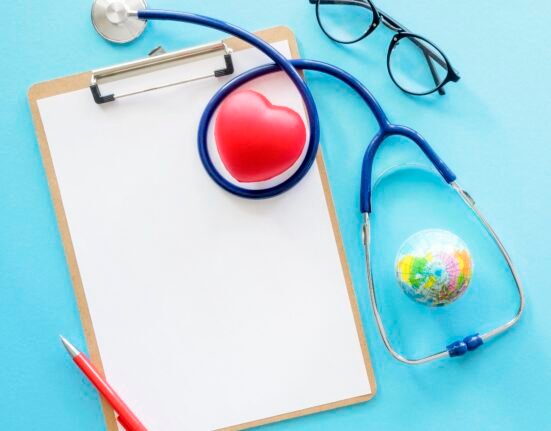
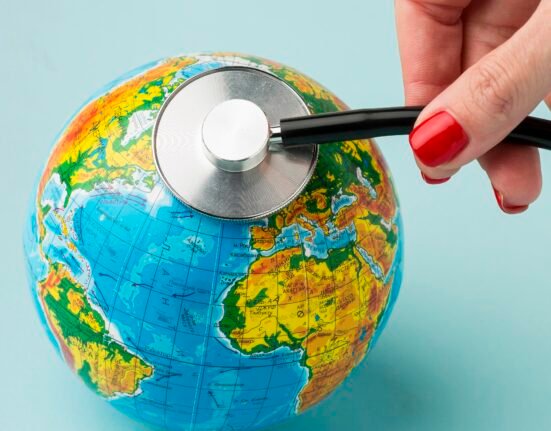


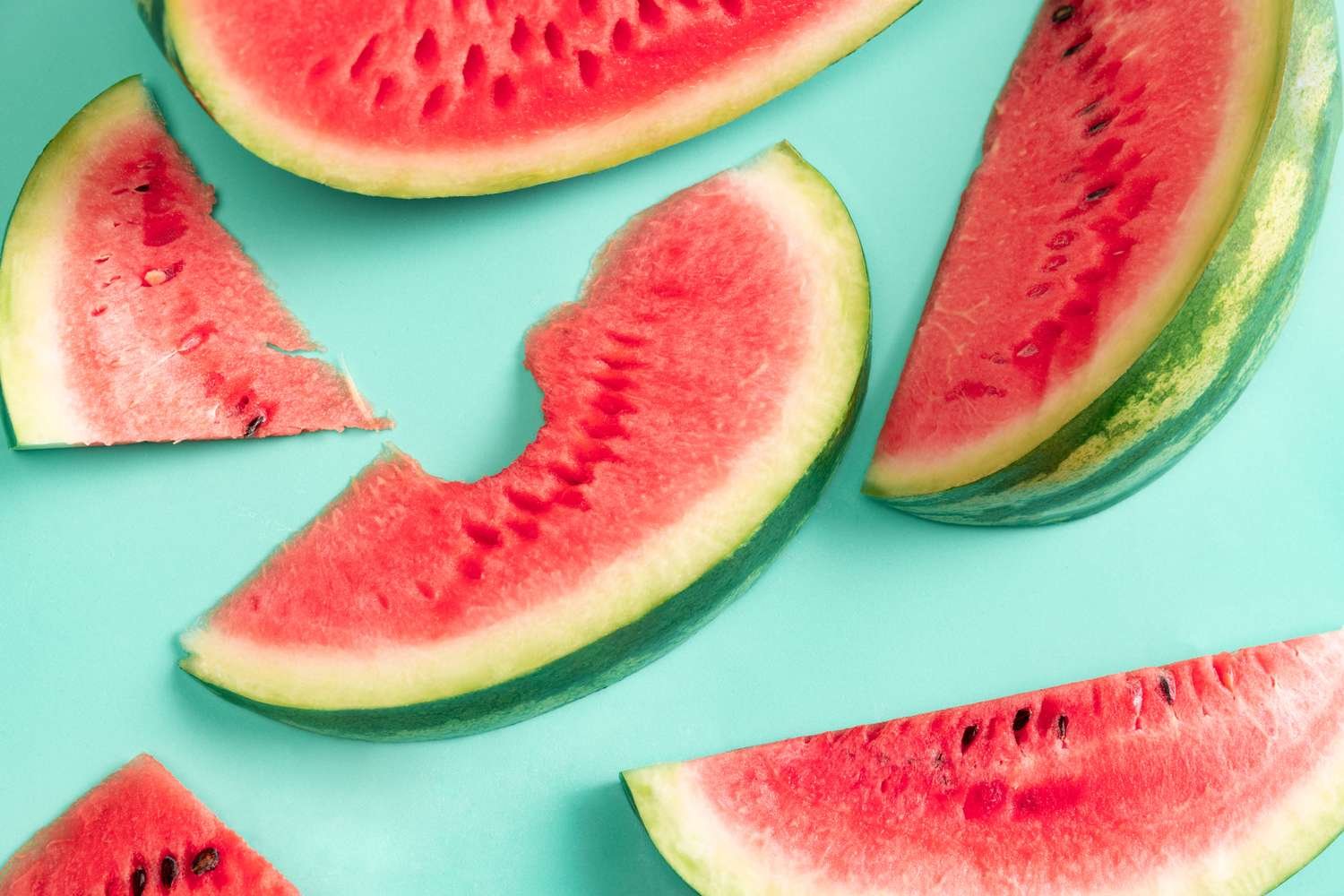
:max_bytes(150000):strip_icc()/AmberJ.Tresca_1000-03288146de15463da9ec7713d9c70c40.jpg)




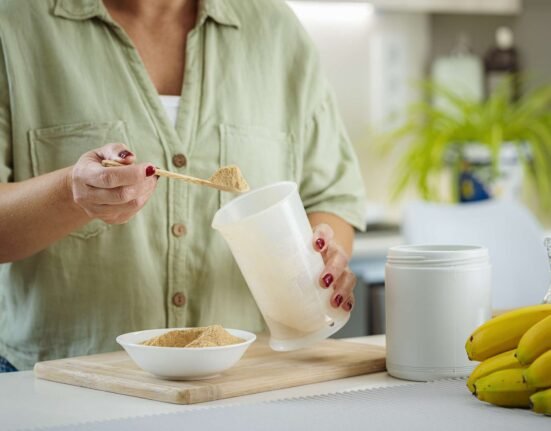
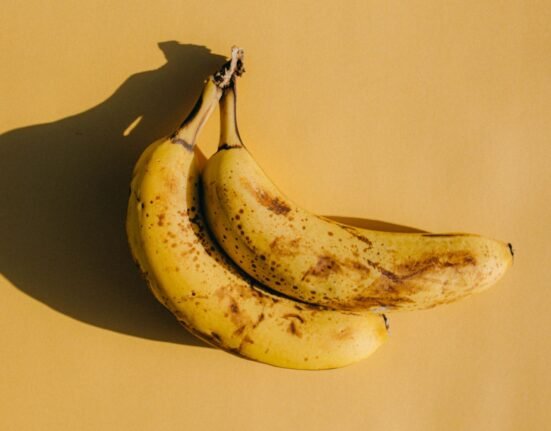
Leave feedback about this